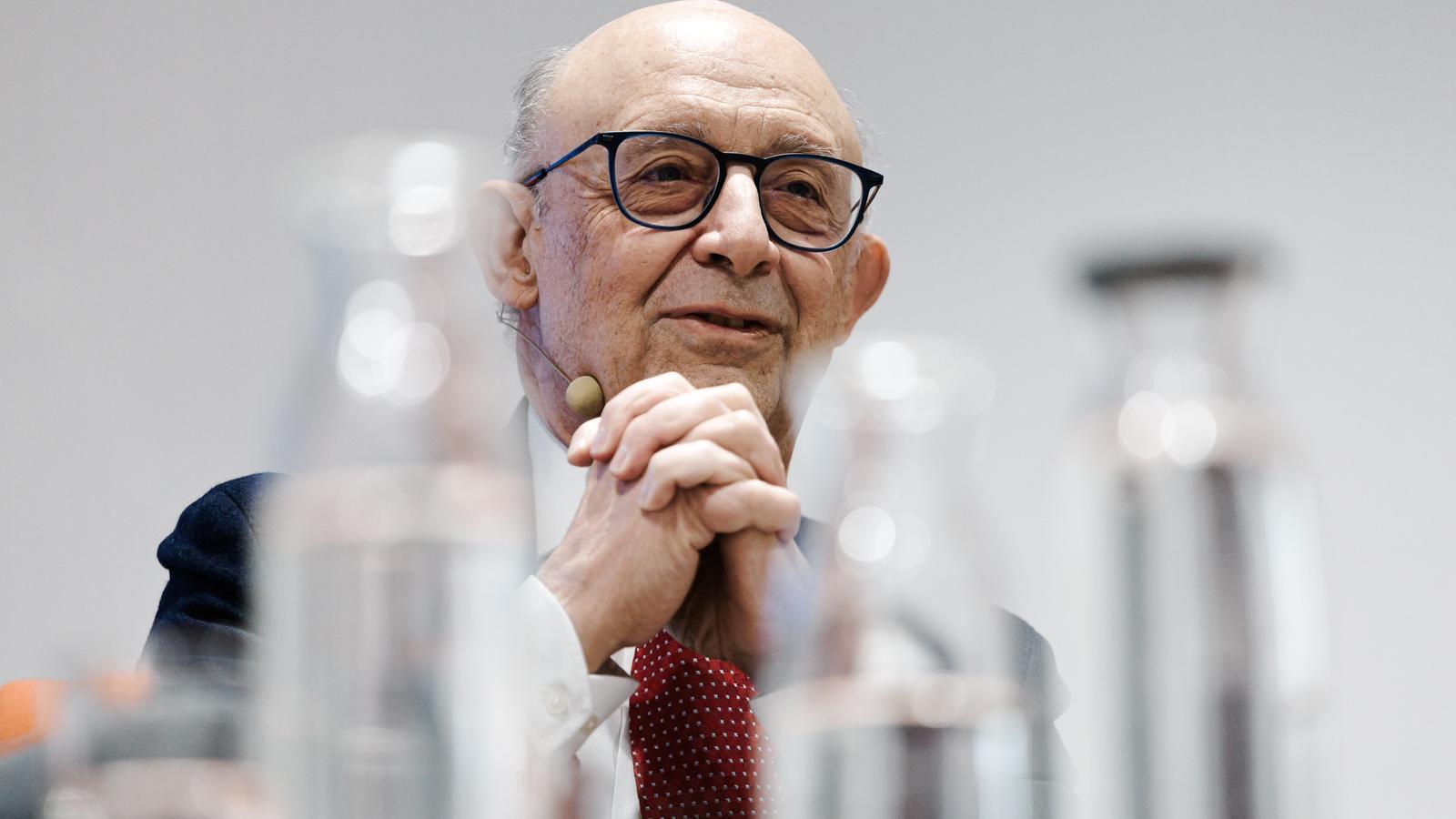

This article is about the Montoro case, albeit from a slightly different perspective. That's why I'd like to begin by opening a prudent parenthesis in the form of a question. The fact that a case that's been going on for years, more than a decade, has become public immediately after Of another very serious case of corruption affecting Pedro Sánchez's government, should it be attributed to chance? And the fact that—to give just one example—a newspaper aligned with the current PSOE government ran its front-page headline last Sunday, "The case of the former PP minister rebalances the political battle," should that be considered a mere journalistic interpretation or a programmatic prescription? I'll close the parenthesis.
The Montoro case is being investigated as to whether, as former Minister of Finance, illegally benefited gas companies and other sectorsHe is accused of allegedly using his position to create laws favorable to clients of Equipo Económico, the law firm he founded. However, the existence of a list of individuals affected has not been widely emphasized. They range from political adversaries like Juan Carlos Monedero to members of his own party like Esperanza Aguirre and Rodrigo Rato, as well as celebrities like Rafa Nadal and Baroness Thyssen. It has also been mentioned, but as if it were an unimportant fact, that Montoro was asked about his relationship with Equipo Económico back in 2015, and he simply responded that, despite having founded it, he had no idea. So, how could it be that the Prosecutor's Office, the police, influential and prominent people, prestigious journalists, etc. knew that something was going on and said nothing at all? And this brings us to the question that gives this article its title: who should sound the alarm in a case like this? And to another: now who should be responsible for the consequences of this omission, as well as for having suddenly closed it and immediately after of the Cerdán case?
In the background, there's a very scary institution: the Treasury. Even without having committed any irregularities, any citizen can be subjected to a crime. parallel year after year until they locate those fifteen euro cents he didn't declare... This is one of the keys to the farce: the lack of institutional checks and balances, or their weakening, can have consequences for the functioning of the system. This is the case with the Treasury, where any error can optionally be interpreted as an attempt at fraud. It's clear that if this weren't the case, everyone would tell the same story about the error, of course. This impasse is what makes the threats of an individual like Montoro lack an effective counterweight. And not just Montoro: when Borrell tried to scare people through the singer Lola Flores, no one dared to insinuate that there is—let's say— ideal fraudsters to carry out an example and others who cannot even touch a hair on their clothes or an emerald on their crown.
The most classic and influential formulation of the separation of powers, understood as a basic counterweight, is found in The spirit of the laws (1748) by Montesquieu, which states that every person who has power tends to abuse it and will not stop doing so until they encounter limits. The key to his approach was not only the separation of functions, but also the interconnectedness and the ability of each power to curb the others. The idea was that, to guarantee the political freedom of citizens, none of the powers could concentrate absolute authority. So: is the more or less tolerated pre-political idea of public, media-based punishment, which has sometimes been exercised by certain institutions such as Montoro's Ministry of Finance, compatible with the rule of law? In such a case, what is the counterweight that should set off the alarm bells? At the end of the 1980s, Giovanni Sartori already insisted on the importance of these counterweights. He distinguished between "majoritarian democracy" and "constitutional democracy." While the former emphasizes the will of the majority, the latter, which Sartori favored, underscores the need to limit majority power to protect minority rights and liberal principles. A genuine democracy is not simply majority rule, but a system in which power is balanced by constitutional limitations, fundamental rights, and institutions. Civil society and the media are a vital part of these checks and balances, so the great fantasy of the new tyrants is to replace them with social media.

